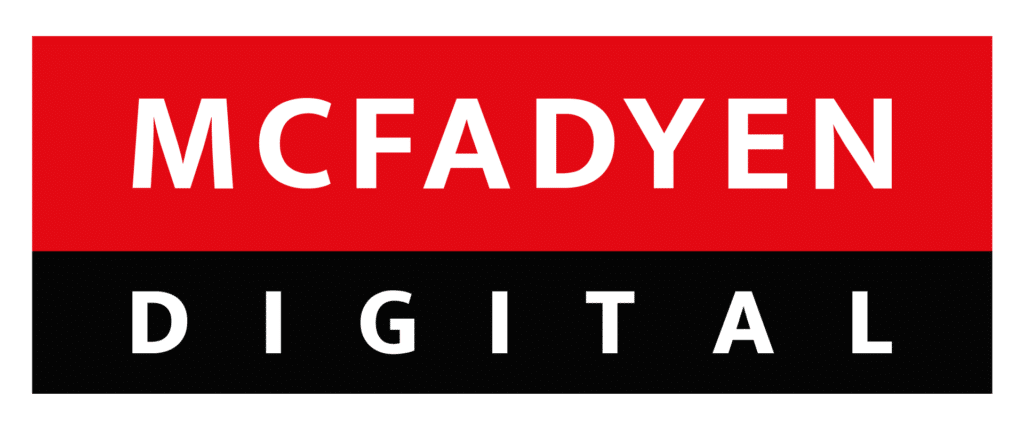
McFadyen Digital attended MIT Platform Strategy Summit that took place on 15th July 2021. The Summit in its 9th edition is now an industry-leading go-to event that explores the management and economics of platforms and their implications globally. The focus of this year’s event was on how platforms are navigating the post COVID world and what lies ahead. In a world ravaged by the pandemic and constantly changing ecosystem, the strategy summit provided excellent guidance to evaluate the state of platform markets and where they are headed.
The Strategy Summit got initiated in 2013 as a small workshop when the idea of a platform was still novel, with a very handful of businesses beginning to make a mark. For context, Uber was only four years old at that time. Today all of the top ten global retailers operate marketplace using the platform model. Eight out of the top ten eCommerce unicorns adopt the platform model, and the top 100 platforms support daily transactions worth billion dollars. These top 100 platforms account for a collective market cap of over $15 trillion.
This year’s co-chairs Peter C. Evans (Managing Partner, Platform Strategy Institute), Geoffrey Parker (Research Fellow and Visiting Scholar at MIT’s Initiative for the Digital Economy), and Marshall Van Alstyne (Questrom Professor in Management and Information Systems Department Chair at the Boston University) led discussions with innovators, venture capitalists, and industry executives, to offer roadmaps and actions for established and new platform businesses.
This year’s Summit, a global virtual event, was shorter and ran from 8:15 AM to 2:30 PM EDT, just over 6 hours from beginning to end. The Summit witnessed 6 CEOs, a Chief Digital Officer, a Chief Technology Officer, and a Chief Economist, all hailing from Fortune 500 companies. Here’s a brief overview of the five sessions and what some of the notable speakers brought to the table.
- Platforms Review & Forecasting: The Future of Platforms After a Year of Upheaval
This session had Pinar Ozcan, Professor, Saïd Business School, University of Oxford, along with the three co-chairs. Pinar’s research includes AI and business models in fintech, open banking, and digital disruption in banking.
- Funding Platforms: A Conversation with Venture Capital Leader Kai-Fu Lee
Andrew McAfee (Co-director, MIT IDE) spoke to Kai-Fu Lee on how Chinese platforms differ from American ones, the state of innovation and entrepreneurship in the two countries.
- Energy Platforms: Accelerating the Great Energy Transition
This session was moderated by Peter Evans with participation from Paul Browning, President & CEO Mitsubishi Power Americas, Ilham Kadri CEO, Solvay, Laszlo Varro -VP for Global Business Environment, Shell, and Cathy Zoi – CEO, EVGo. It was one of the most insightful sessions that threw light on how great energy transition will happen and where are opportunities to accelerate it, how to harness platform business models to drive energy transformation at scale, and lastly, how platforms can advance clean energy technology adoption by efficient transactions connecting key market participants.
- Competitiveness Through Business Model Innovation
This session had Emma McGuigan – Global Lead, Intelligent Platform Service, Accenture, ThembaLihle (Themba) Baloyi – Innovative Business Leader and Founder, Discovery Insure, Sophia Velastegui – CTO, AI for Dynamics 365 Applications, Microsoft, and Bruno Zerbib – Executive Vice President, Chief Platform and Technology Officer, Schneider Electric. Another exciting platform commentary touched upon how incumbent firms transform to platforms and how platforms themselves are becoming innovation enablers.
- Building B2B Platforms in a Material World: A Conversation with Gisbert Ruehl, CEO Emeritus of Kloeckner Steel
In this fireside chat with Geoff Parker, Gisbert Ruehl opened up about major digital transformation and platform initiatives at Klockner Metals and the challenges he faced platforming and implementing radical change in a commoditized business.
- Supply and Demand Shocks in Platform Markets
The last session of the day was from John Horton – Labor Economics & Online Marketplaces Research Group Lead, MIT IDE. With COVID and a post-pandemic theme, this session explored the supply and demand shocks that hit the platform markets and provided a well-informed overview of what to expect next and how to navigate uncertainties.
Like last year all the sessions this time were interspersed by musical experiences. This year’s event featured Alice Pisano and David Davis. They were identified and presented by Songtradr, the world’s largest B2B music licensing marketplace. Songtradr connects artists who produce music with agencies, film and TV, apps and games, and consumers looking to buy music. The platform has over 800,000 artists.
While networking can happen organically for an in-person event, virtual networking can be pretty challenging. Thanks to Twine, a cloud-based software uses attendee’s LinkedIn profile to throw up relevant matches. Once a match is made, it automatically creates a 3-minute virtual session on a one-to-one basis. It made virtual networking very engaging and hassle-free.
Key Takeaways
Overall, it was a great experience and time well spent, and if we summarised the whole experience, these would be the key takeaways:
- Companies are considering platform as their core strategy now.
- Businesses are seeing opportunities to leverage resources, networks, tap new emerging talent through the platform model.
- Several traditional businesses are transforming to platforms, especially in emerging markets like South Africa.
- Even standard commodity businesses like Steel are looking to transform through Platformization even though challenges remain in terms of regulations.
- While Self-governing platforms are the holy grail, AI will play a significant role in pushing forward the platform economy.
- What customers want is not the platform but what the platform can do.
- More than anything, business model innovation, and digital transformation are about cultural/ mindset change.
- Transition to the platform will be led by forward-thinking leaders who understand the value of partnership and nurture an ecosystem to create win-win synergies.
McFadyen Digital has been enabling platform businesses for the last 15 years. We are a leading global agency for ecommerce marketplace strategy and implementation. Taking a collaborative approach to composable digital commerce technology, strategy, architecture, and integrations, we work with enterprises to ensure their customers are delighted by scalable and profitable shopping experiences.
In fact, our new book “Marketplace Best Practices” explores the online marketplace model as a means of platforming an ecommerce business. It looks at what constitutes an online marketplace, who is currently succeeding with the marketplace model, and how an organization can build and grow an online marketplace of their own. Going beyond the superficial and taking a deep look at the nuances and possibilities of the marketplace model, this book discusses everything from market motivations, various models of marketplace, building a business case, making strategic decisions, selecting the right technology, then building and launching a new marketplace property.
Related Articles
Turn Insight Into Impact.
Start Today.




